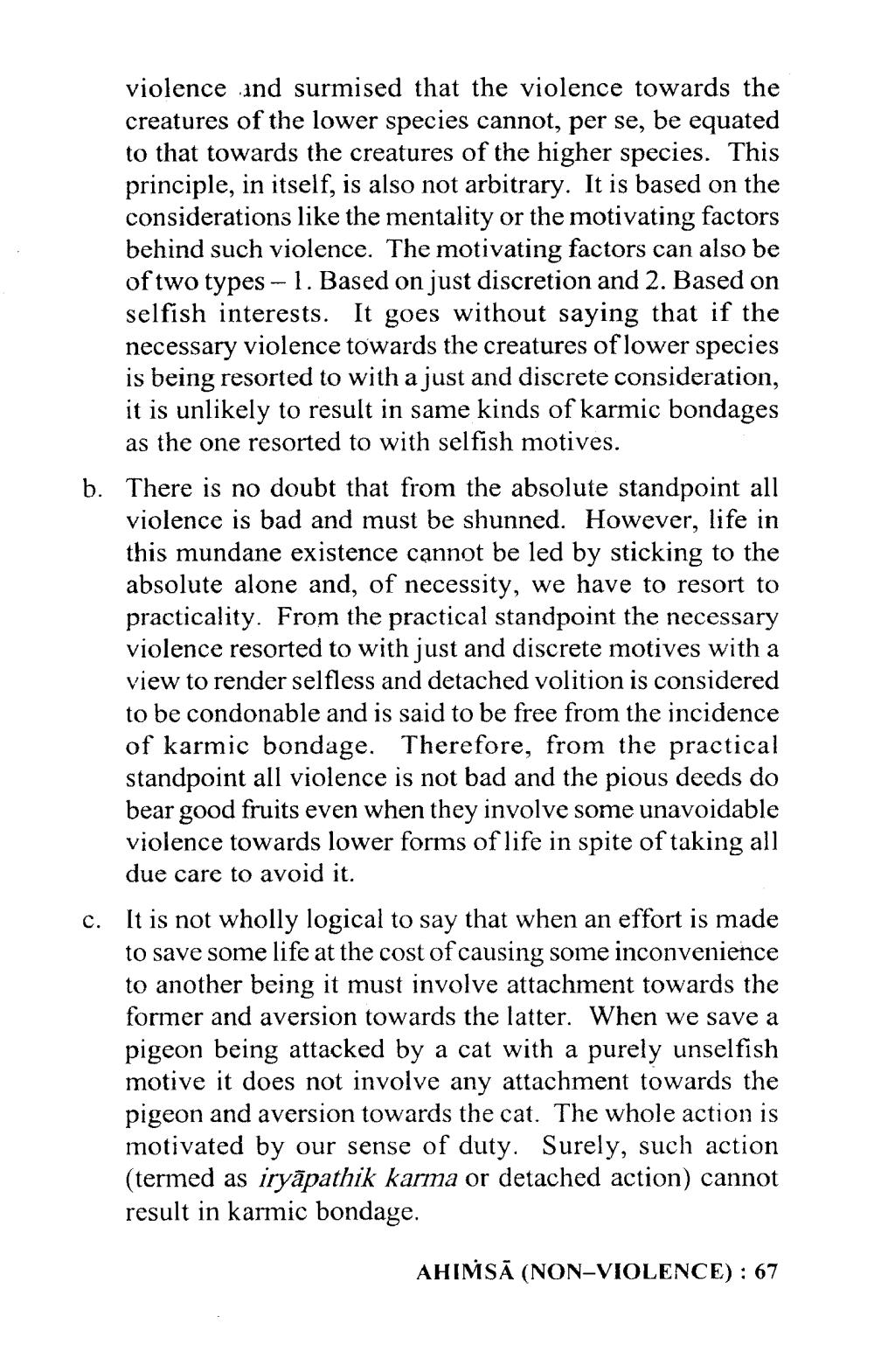________________
violence and surmised that the violence towards the creatures of the lower species cannot, per se, be equated to that towards the creatures of the higher species. This principle, in itself, is also not arbitrary. It is based on the considerations like the mentality or the motivating factors behind such violence. The motivating factors can also be of two types - 1. Based on just discretion and 2. Based on selfish interests. It goes without saying that if the necessary violence towards the creatures of lower species is being resorted to with a just and discrete consideration, it is unlikely to result in same kinds of karmic bondages as the one resorted to with selfish motives.
b. There is no doubt that from the absolute standpoint all violence is bad and must be shunned. However, life in this mundane existence cannot be led by sticking to the absolute alone and, of necessity, we have to resort to practicality. From the practical standpoint the necessary violence resorted to with just and discrete motives with a view to render selfless and detached volition is considered to be condonable and is said to be free from the incidence of karmic bondage. Therefore, from the practical standpoint all violence is not bad and the pious deeds do bear good fruits even when they involve some unavoidable violence towards lower forms of life in spite of taking all due care to avoid it.
c. It is not wholly logical to say that when an effort is made to save some life at the cost of causing some inconvenience to another being it must involve attachment towards the former and aversion towards the latter. When we save a pigeon being attacked by a cat with a purely unselfish motive it does not involve any attachment towards the pigeon and aversion towards the cat. The whole action is motivated by our sense of duty. Surely, such action (termed as iryāpathik karma or detached action) cannot result in karmic bondage.
AHIMSA (NON-VIOLENCE): 67




